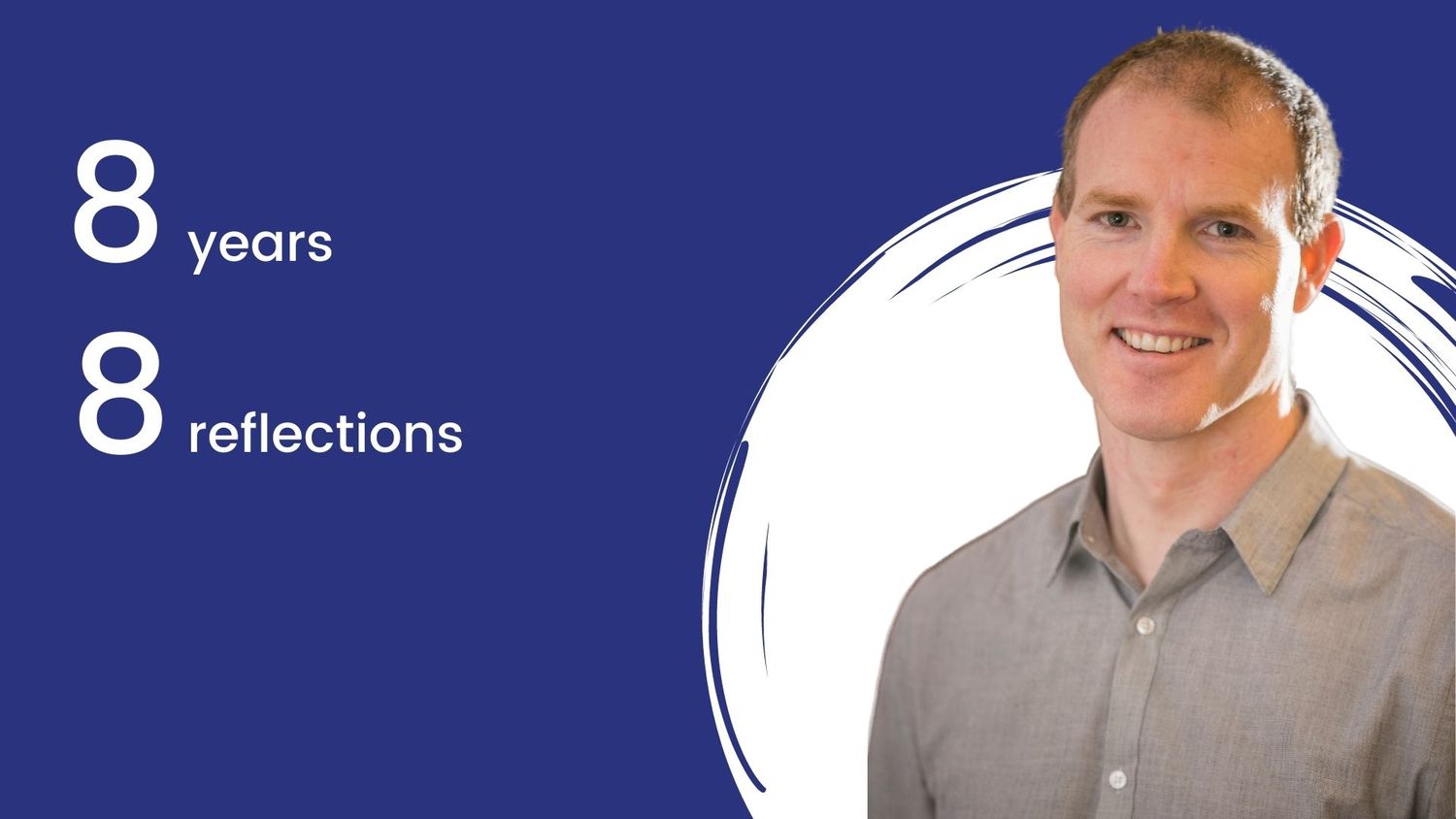

Foundation News
Social Innovation in Northern Ireland – 8 years, 8 reflections
26 Jan 2022
Paul Braithwaite, Head of Innovation & Voice at the Foundation
After eight and a half years, this week I’m moving on from a job I’ve loved, as Head of Innovation & Voice at the Community Foundation. Coming into the role in 2013 I didn’t even know what social innovation was (it turns out a lot of people are doing it without knowing it!). I’ve learned a huge amount through the privilege of collaborating with and supporting so many great organisations and projects. Here’s eight short reflections from my eight thoroughly enjoyable years.
Civil society, especially the third sector, is the natural home of innovation
Innovation is most likely to happen in conditions of scarcity and where diverse and passionate people work together on a shared challenge. That pretty much sums up the third sector. I came into this role as a dyed in the wool believer in the critical role of civil society in driving social change, and I leave the role ever more convinced of this. In fact, I can’t think of many examples of positive social transformations that haven’t been driven by civil society – from the abolition of slavery to the suffragettes, to the green movement to our own civil rights and peace movements. In all of these cases, it was civil society that led, spurring governments, politicians and business to follow.
Innovation is much more than brainstorming ideas
People often focus on innovation being about new ideas. Admittedly I’m a big fan of brainstorming, and anyone who has worked with me can attest to my tendency to get distracted by the next idea! However, through the fantastic (and fun) Creative Problem-Solving process that we use on our Community Innovators programme, I’ve learned that brainstorming, or ‘ideation’ in the jargon, is only one of four key stages in the innovation process. We also need clarification (identifying and interrogating what the challenge is), development (turning ideas into workable concepts) and implementation (testing small, learning, adapting). Everyone will have a preference for one or more of these key stages, and the best teams will have people with a mix of them all. So even if you hate a brainstorm, you’re still a potential innovator.
Innovation is not an elite sport – lived experience is critical
Whilst innovation work can take many forms and be applied to any issue, one of the most important uniting features of ‘social’ innovation is a belief in the primacy of the knowledge held by people with lived experience of the challenge at hand. In this way, true innovation work is fundamentally a democratic exercise. When insights from lived experience are combined with more traditional forms of ‘expertise’ (e.g. from academia) it opens new possibilities for solutions that can drive forward systemic change.
Funders can be massive enablers
The funding environment can be a critical enabler, and a blocker (see below), of innovation. There’s no such thing as neutrality in funding and philanthropy – through our values and processes we can support and incentivise innovation. One part of this can be simply getting out of the way as much as possible – reducing bureaucracy to a minimum, offering flexibility and long-term support where possible. Alongside this we can also run programmes that deliberately incentivise innovation, for example through investing in the pre-funding phase, before assumptions about the right solution to a challenge get baked in.
Funders can be massive blockers
The cardinal sins of funding are all too well known to many in the Northern Ireland third sector – bean counting, time-sheet filling, short-term grants, focusing on activities over impact, etc. When this becomes the predominant funding culture, the sector adapts to manage this as best it can, and its capacity to innovate suffers as a result.
Social enterprise and social innovation are linked but not the same
This might seem like a technical point to many, but hear me out! Many social enterprises are innovative, just as many innovations can be found in social enterprises. But one is a type of organisation and the other is an approach to change. It is not surprising that these similar terms are often conflated, however to me it’s important that an idea or project’s sustainability doesn’t simply get reduced to its business model. If a project or initiative can generate revenue to cover costs and help it scale up then all the better, but for some this will be impossible. I was once told that social innovations are “business model agnostic” – that is, they can and do occur within governments, in grant-maintained charities, in social enterprises and in private businesses – their defining feature is their impact not the type of organisation they’re housed in.
Innovating our democracy underpins everything else
If innovation is about transforming dysfunctional systems, then surely the effectiveness of our political and decision-making systems hold the key to change on nearly everything else. In Northern Ireland, as with many other places, our democracy is creaking and people’s faith in it could ebb away. If lived experience is critical to understanding and finding solutions to challenges, a more participatory and deliberative democracy is the innovation our politics needs. Thankfully there’s a whole field of democratic innovation driving forward new approaches like citizens’ assemblies and participatory budgeting that can be used by governments and communities anywhere.
Achieving scale is hard, especially without policy support
If “the best way to have a good idea is to have a lot of ideas” then continuous support for early stage innovation is crucial. However these ideas, once tested, need scaled up if they are to realise their potential. At the Community Foundation we’ve focused on early stage innovation to date but the resources needed to provide scaling support are harder to access. We need a functioning ‘ecosystem’ of supports in Northern Ireland for innovations at all stages and that is well beyond any single organisation or funder. Within government, there are plenty of advocates for innovation too, but without a supportive policy environment – particularly a more inclusive understanding of innovation as being about solving society’s challenges, rather than simply growing the economy – meaningful change will remain elusive.
Looking back at the great moments of social transformation, too many of them have followed a monumental crisis entailing much human suffering, not least here in Northern Ireland. Some might say this is just how human societies work and there’s nothing we can do to avoid this, but I don’t believe that. Social innovation can help us better understand the factors that enable social change to occur, so we can avoid repeating the mistakes of history.






